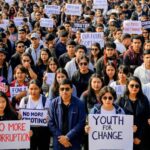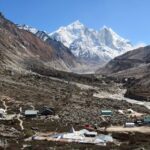In the second week of July 2024, when two buses were swept into the Trishuli River during a mudslide in Simaltal on the Narayanghat Mugling section of highway west of Kathmandu, fifty-four passengers lost their lives and many bodies still have not been found even weeks later. The government’s apathy was glaringly evident as the Home Ministry, responsible for search and rescue, did nothing different than the previous ministers. While air accidents grab headlines space and become a matter of public discussion, road accidents do not attract the same sense of attention. The number of deaths due to accidents averaged 2,500 in the past five years. However, these continue to be mere statistics.
The accidents occur due to the combination of multiple issues. First, the condition of the roads and their maintenance is poor. Monsoons provide the opportunity to rework roads that generate more money. Little said the better about the firms that are contracted to do the work. They claim they cannot make money if they do a good job, given the procurement system. However, the procurement system is designed to get shabby firms to do shabby jobs for a ridiculous price. The cartels of these firms ensure that the status quo remains; otherwise, world-class contractors delivering the best work at the best prices will take over the business.
Then there are the vehicles. In the past two decades, the quality of vehicles has improved with better braking functions and warning systems. However, the transport industry, which is again heavily cartelized, is driven by profits. They have little sense of the business being one of service as the syndicate protects the revenues. Essentially, this makes it a seller’s market. The overworked driver and staff have little say, as the industry has set up a norm of informality where the staff are unsure of their social security and benefits. In Nepal, the irony is that bulk of the public transport is run by private firms that have least accountability and the greatest political connection.
Monsoons also bring more news of disaster across the country. During summer, there are deaths due to heat waves. In winter in high Himalayas, people are cut off and there are no statistics on deaths and injuries. Each year during monsoons, we read and watch videos on landslides and flooding. Politicians and limelight hoggers reach the right spots at the right time and take the right pictures. But beyond that, it is an annual affair. Perhaps, we are yet to see any political leader with the right thinking process of not just talking but also doing the right thing. The people have resigned to their fate as they do not have any trust government responses.
In the US, if there is a crisis at home, the first thing one does is dial 911. The emergency call number is an effective public safety system that provides immediate response. This government-operated system ensures that even if one lives alone, has no family members, or does not know their neighbors, they can feel safe during any emergencies with the presence of government system to take care of them. This is also true in many other countries. While Nepal does have police hotlines, people’s immediate impulse is to look for friends and families, members of the ethnic group, or people of the geography to which they belong. People have very little expectation from the government or the politicians. The general belief is that one should not expect anything reliably from the government, so one needs to fend for themselves.
Preventing disaster, providing relief, and managing disasters is not just a seminar item or a project; it has to be something that requires a commitment to quality. By focusing on quality, accountability, and community engagement, Nepal can improve its disaster management and create a more resilient system. Our project mindset alongside government with short life just drives people towards engaging in quick-fix solutions. What we require is a mindset that understands, demands, and ensures quality. Quality roads and vehicles with high-quality service guidelines can prevent accidents. This calls for not just government intervention but rather an eco-system that understands this. The government’s role includes setting a standard for the entire system. One way is to ensure that officials from the Department of Roads officials or Ministry roads use and maintain roads properly. We will only start believing public vehicle owners when they start to maintain the vehicle they drive or are driven in well. People who demand well-maintained, clean vehicles for themselves can only provide good ones for others. If the government folks are tardy, then perhaps some private businesses can lead and show the way.
Sujeev is the founder CEO of beed. He leverages over 25 years of experience in diverse fields and geographies to advise, lead and inspire. With comprehensive networks in Nepal’s public, private, civil and diplomatic sectors, Sujeev is a trusted business and policy advisor and respected strategic thinker. From economies of developing countries to economies of human beings, he moves across different worlds, with his passion for the Himalayas being the axis.





